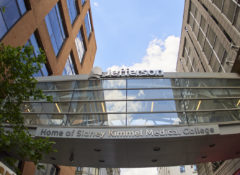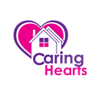
Apr 28, 2019 by caring
Jefferson Health — a 14-hospital system with more than $5 billion in revenue — is turning to a social media-inspired technology platform to fill communication gaps with its home health partners.
The platform comes from Chicago-based Prepared Health, which helps hospitals connect and collaborate with the post-acute providers taking care of their patients following discharge in real time. Jefferson, which operates in the Philadelphia and New Jersey markets, hopes Prepared Health’s cloud-based platform will lead to reduced readmissions, lower emergency room utilization and streamlined transitions for its patients.
Specifically, Jefferson plans to use the platform to improve hospital and home health provider communication surrounding its Bundled Payments for Care Improvement (BPCI) Advanced population, including heart failure and sepsis patients, Dr. Maryann Lauletta, vice president of medical operations for Jefferson, told Home Health Care News.
“Right now, we have pretty tight control over our spending in the hospital setting,” said Lauletta, who leads Jefferson’s transitions of care operations. “We do well when we compare ourselves to the rest of New Jersey and the region, but where we often fall out is in the post-acute care setting. Our biggest spends are in the skilled nursing facility (SNF) setting followed by home health care.”
Jefferson has been working with Prepared Health for about six months. The large health system expects to officially go live with the platform in early June, initially rolling it out at its Cherry Hill, Stratford and Washington Township hospitals in New Jersey.
Launched in 2015, Prepared Health designed its communication platform to facilitate the intuitive exchange of patient information across different health care providers and settings. To do so, the platform mirrors popular social media networks, allowing authorized users to tag each other, send referrals and rally around a patient’s plan of care in a HIPAA-compliant fashion.
Co-founded by Medicity veterans Ashish Shah and David Coyle, Prepared Health has raised $4.2 million since its launch, with funding coming from Chicago Ventures and Pritzker Group Venture Capital, among others.
In addition to Jefferson, the technology company’s steadily growing list of clients includes New Jersey-based FOX Rehabilitation, Illinois-based Crystal Home Health Care, Alabama-based Encompass Health Corporation (NYSE: EHC) and Pennsylvania-based Holy Redeemer Health System.
“This is an opportunity that we’re really excited about,” Shah, who currently serves as CEO of Prepared Health, told HHCN. “This opportunity with Jefferson will now allow us to complete division and showcase our full potential by taking a top-eight metropolitan city, connecting everything from the hospital all the way into the home.”
Bayada Home Health Care — which is one of the country’s biggest home health providers and has a strong presence in the same markets as Jefferson — was one of Prepared Health’s very first clients.
“We’ve been working with Prepared Health for a few years now,” Bayada CEO David Baiada told HHCN. “Transitions of care from an institutional setting like a hospital to a person’s living room — probably their preferred setting for care — are complicated and can be really confusing for everyone involved.”
Better communication, better results
Overall, Prepared Health’s technology is being used throughout nearly 300 active sites of care, with another 400 “waiting in the wings” in future markets, according to Shah.
Those numbers may climb over the next year as well, as home health providers look for any opportunity to reinforce their operations prior to the Patient-Driven Groupings Model (PDGM)’s Jan. 1, 2020, implementation date.
“This industry is clearly moving from a relationship-driven model for home health to a data-driven model,” Shah said. “PDGM really touches on that. A lot of the work and collaboration we’re doing — not only with Bayada, but with Jefferson and others — is to really activate data to unlock the right level of care, at the right time and in the right place.”
Internal studies have previously found that home health providers using Prepared Health’s platform experience a nearly 30% reduction in readmission rates for congestive heart failure patients. Nationally, about 40% of patients with heart failure end up back in the hospital within months of discharge.
In terms of home health discharges, the vast majority of Jefferson’s patients stay within the system and receive care from its in-house services line, according to Lauletta. The health system has solid relationships with its external home health partners, but communication obstacles are inevitable, she said.
“Honestly, one of the biggest reasons we see our patients get readmitted is gaps in communication,” Lauletta said. “Something was missed in the transition, whether it be medication or appointment-making. It usually is a failure point when a patient is switching from one setting to the next.”
Besides home health providers, Jefferson also plans to use the Prepared Health platform to reduce SNF length of stays.
“We don’t necessarily have control over what is happening to patients when they’re in the SNF,” Lauletta said. “We can now stay connected and ask for updates throughout their stay, checking in to see if patients are reaching certain milestones.”
Combined, Jefferson Health and its 24,000-plus employees care for more than 1.3 million individuals on an outpatient basis.
Growth ambitions
On Monday, Prepared Health named David Bean as its senior vice president of sales and marketing, a new position for the four-year-old company. In the role, Bean will be tasked with building a national sales team to build further ties with hospital and post-acute care providers.
“[Bean’s] primary goal will be to accelerate our entry into the national market through new strategic partnerships or direct opportunities,” Shah said. “We’re thrilled about our growth.”
Prior to joining Prepared Health, Bean served as vice president of strategic accounts for Complete Merchant Solutions.

